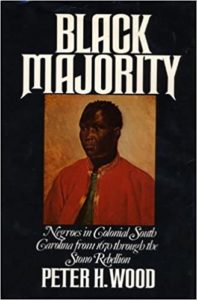Let’s Talk About Race and Racism. Part 3: How Slavery Created Early Racism
This article is going to cite a lot of history on slavery and racism that really should be backed with copious references. I mostly won’t do that–I don’t have the time to cite all sources (I will cite some though) and this isn’t a scholarly paper anyway. But all is based on reading history over a period of decades…a reading of history that shows that the transatlantic slave trade that arose after the discovery of the Americas by Europeans–a slave trade that proved to be so profitable that it provided the justification for what I’m calling “early racism.” (Racism did not fully develop until the 19th Century. As opposed to some modern ideas that presume Europeans were engaged in white supremacy from day one.)
Note also this is a bit long for Speculative Faith–and doesn’t directly relate to Speculative Fiction, though I make a brief mention of world building. It does relate to Christianity though. And we will talk about Speculative Fiction in later posts. But please bear with this article–it lays out something very important to any discussion of race and racism.
But first, how these things developed:
Why Ancient Slavery Wasn’t Racist
In the ancient world of Greece and Rome–or throughout most of ancient Africa or Mesopotamia or East Asia or Northern Europe or even in the Americas–slavery existed. Slavery sometimes acted like a form of bankruptcy in which a person who could not pay debts would auction off self (or at times, family members) to pay debts. Also, Slavery often took place in the aftermath of battles and conquests–so those still alive among those who lost a war probably were forced into slavery.
But in the ancient world the stigma of being a slave wasn’t what it would become after the transatlantic slave trade began–so much so that I’m not bothering to use the modern phrasing of “enlsaved person,” designed to emphasize the humanity of a person held in slavery. Ancient slavery never denied that slaves were human.
Literally anyone could become as slave. When the Roman emperor Valerian was captured in the aftermath of the Battle of Eddessa in AD 260, Romans were shocked to hear of the defeat and that the Sassanid (Persian) emperor made him a slave. But their shock came from the defeat and loss–it wasn’t shocking that Romans, even the emperor, could be made slaves. How that ended for Valerian is something neither ancient nor modern historians agree on–but the Romans understood very well how he got be be a slave. He lost a battle.
Slaves could enter the ancient world from any continent–the word “race” with the definition we have of it didn’t even exist in ancient times, as I showed in my last post of this topic. But yes, slaves could be of any race. They could be from Europe, from Africa, from Asia. Plus, slavery wasn’t necessarily a permanent condition. Freed slaves could have respected positions–though in fact some slaves were respected scholars while enslaved–in particular Greek slaves in Roman households.
The Bible Reflects Ancient Slavery, but Undermined it
The Bible of course comes to us from the ancient world–the ancient world of Egypt and Mesopotamia (with a hint of Minoan in the Philistines) leading into the ancient world of Persia, Greece, and Rome. The law of the Old Testament reflected this type of ancient world slavery in which anyone could be a slave. It put restrictions on slavery that made a distinction between Hebrew slaves and non-Hebrew in Exodus 21. Hebrews could not be kept as slaves longer than seven years (Ex. 21:2), though there were some exceptions to that rule.
Foreign slaves could be held as slaves indefinitely, though were to be set free if permanently injured by a master (Exodus 21:26-27), but this does not mean the Old Testament law encourages such slavery or that it was an ordinary part of ancient Israelite life. The act of kidnapping a free person and enslaving him or her was a crime worthy of the death penalty in the Old Testament (Exodus 21:16). Which means that slaves either would have to have sold themselves or be captured in a battle to be legitimate slaves according to Old Testament law.
The New Testament on the issue of slavery repeatedly encouraged thinking of enslaved Christians as spiritually equal to other Christians (Philemon 1:15-17 and elsewhere)–but at the same time told those held in slavery to serve their masters well (Ephesians 6:5 and elsewhere). The Bible was not directly revolutionary on the subject of slavery…but rather was subversive with the commands to “love your neighbor as yourself.” Yes, ancient society saw people as having different roles and one of those role might be as a slave–but if you would not want to be held as a slave yourself, why would you permit that to happen to your neighbor? Or even your enemy (Matthew 5:44)?
And lets not forget that one of the most important Bible narratives is how God came to the rescue of the Israelites and delivered them from slavery at the hands of the Egyptians. Yes, the Bible permitted slavery–but the overall tenor of the Bible very much undermined it.
How Slavery Came to the New World, Step by Step–Islamic Influence
There’s a part of this story I’m skipping over quickly in interest of keeping this article from growing too large–but let’s mention the fact that by the late Medieval period, slavery had become illegal in most of Europe. The Catholic church deserves credit for propting secular authorities to enact laws that discouraged slavery. To that point that slavery was virtually unknown in most of Europe circa AD 1400 (though of course Europe had serfdom instead, not by any means totally different from slavery, but a step up).
But even if the Europeans had mostly put aside slavery, they were in contact with a civilization in which slavery like that of the ancient world remained common. The slavery of Islamic civilization.
Islamic slavery is another topic worthy of longer treatment than it’s getting here, but let’s be sure to mention that Arab caravans crossing the Sahara brought Islam to West Africa–but took back with them, among other things, African slaves. Timbuktu in West Africa was a center of slave trade–and Muslim merchants bought slaves from Africa in the East from Zanzibar, of the coast of what today is Tanzania.
So when the Portuguese started sailing around Africa in order to find a route to the spices of the far East (this was necessary because the Ottoman Empire cut of the ancient land routes to Asia), they knew from day one that slave trade was a way to make money off the voyage. They knew this because their neighbor, the Emirate of Granada in southern Spain, actively engaged in slave trade, as all Islamic civilization did both before that time.
The year 1492 was not just the year Columbus sailed, it was the year the Spanish finally defeated Granada, marking Spain as a civilization eager to fight for its version of Christianity–but willing to employ some of the methods it learned from its Muslim neighbors.
How Slavery Came to the New World, Step by Step–Spanish Slavery
Portuguese slavery is also important but let’s focus on Spanish slavery. The Spanish brought slaves to perform various kinds of work in the colonies they founded in the New World, before the English first landed in Virginia. But note that this early form of Spanish African slave trade was much like ancient world slavery at first. Sure, the Spanish weren’t getting enslaved, but the point was to exploit labor and did not come from any idea specficially based on race. The Spanish at first mostly bought slaves from the Portuguese and for the Portuguese, Africa was literally along the way to their goal of trade with east Asia. Africa was simply convenient for them–not that they saw Africans as specifically inferior and worthy of slavery.
Though at first when the Spanish conquistadores arrived in the New World, especially in the wake of their successful conquests of the largest Native American empires of their time, the Aztecs and the Inca, they mostly enslaved Native Americans. The lesser nobles and mercenaries from Spain seeking riches found lands where their dreams of power and wealth could come true–on the backs of the native people who lived there. Both the Aztecs and Incas had amassed a large amount of gold in their royal palaces. But somebody had to melt that gold down and send it back to Spain–plus there was more gold in the hills to be sure…though silver in abundance is what the Spanish actually found, in both Mexico and Peru.
Someone would have to work those silver mines–and raise crops and such–and the conquistadors never intended it to be themselves doing that kind of backbreaking work. They saw the natives of the lands they conquered as the primary source for that labor.
Bartolome de Las Casas
This began to change with the writings of Bartolome de Las Casas. At the risk of over-summarizing, De Las Casas was sent as a Dominican Priest responsible for the conversion and religious education of Native Americans. He encountered Spaniards justifying the enslavement of “Indios” by claiming the natives of the New World were inherently inferior to Europeans.
He vigorously argued that Native Americans are not by nature inferior–he argued they have souls and should be treated with respect and dignity. He made his case up the chain of command of the Catholic Church and to the Spanish crown. And in short, his argument was accepted. Well, partially. Outright slavery of Native Americans became illegal in Spanish colonies (and eventually Portuguese colonies). Unfortunately, they were instead forced into a kind of serfdom–still, they could not be bought or sold at market and De Las Casas’s argument that natives are as human as Europeans was accepted. In theory anyway–not to say Indios did not face discrimination (of course they did), but the Spanish colonies recognized them as persons before the law.
But almost as a side note to his main point, De Las Casas suggested that if the Spanish really needed labor, they should simply rely more on African slaves. This he wrote for the purpose of helping Native Americans. He later would recant having said this and argue that Africans are also unworthy of slavery, just as Native Americans are, because Africans are likewise fully human. But this latter argument didn’t gain much ground with the Catholic heirachy, for reasons I don’t fully understand…but which may have had to do with the fact the Spanish rulers still were not inclined to do hard labor themselves…
Slaves–or now let’s say “enlaved persons”–were imported into Spanish colonies the entire time they were under Spanish control, from the 1500s to the 1800s. In Mexico and Peru, enslaved laborers mostly worked in the silver mines.
Forced Labor Begins in the English Colonies
The first Virginia colony came with a lot of lesser nobles hoping that they could also exploit the gold of the New World, just as the Spanish had done. Though Virginia doesn’t actually have any significant amount of gold and never did, they didn’t know that.
The attitude of European nobilty from the Middle Ages was that it was their job was to fight in war–manual labor was for peasants. This attitude at first was seen in Virginia just a much as it was in the Spanish colonies. John Smith, early leader of the Jamestown colony, not only distinguished himself with his complex relations with Native Americans (he allied with them and also attacked them) but also in that he forced the colonists to get out and work, to plant food crops and provide for themselves.
The colony and other early English colonies in fact mostly relied on European labor labor at first. Native Americans could be forced to work, but had a tendency to die off from European diseases. (The arguments of De Las Casas didn’t matter much to the Protestant English, though some Protestants would later defend the same ideas, such as Roger Williams.) Besides, Native Americans could always escape back to their tribes. Note the British crown would eventually develop the idea that Native American tribes were their own sovereign nations–nations with whom the British could make treaties and with whom some principles of international diplomacy applied. Which in a sense granted Native Americans the status of people–albeit enemy people.
Some Englishmen perceived the New World as a land of opportunity quite early on, even if they didn’t have the means to pay for a voyage across the Atlantic. Beginning in the decade following the settlement of Jamestown, some English willingly came to the Americas to work for those who had established themselves as leaders in the English colonies. They worked for no pay for seven years as “indentured servants” but in the seventh year were released with certain minimal items to allow themselves to survive. And an opportunity to own their own land. (A custom clearly borrowed from the text of the Bible.)
1619
The 1619 Project, which I will not make much effort to explain (you can Google it), argues that a Portuguese ship arriving in Virginia offering Africans for sale was the real beginning of America, because America has been so profoundly shapred by slavery and racism since then. But hold the phone on this thought–the Africans who came don’t leave a complete mark in the historic record, but it seems they were treated as indentured servants, not slaves. That is, they were put to work for seven years, then released. This is actually a subject of some controversy–but there is no clear indication they were held as slaves for life or treated differently than European indentured servants. They certainly did not have a different legal status from other colonists. That may be surprising, but it’s true.
Virginia didn’t pass a law code legalizing slavery until 1661. And though the specific details of what happened to the first Africans who came to America wasn’t captured by history as far as I’ve seen, it is in fact reasonable to assume they were treated like everyone else as far as not being held as slaves for life.
Irish Forced Indentured Servantood
While many indentured servants were Englishmen seeking a better life, Ireland had been conquered by the English and the Irish made trouble for the English in various ways. One way the English responded to this was to force Irish people to the early English colonies as indentured servants, especially during the time of Oliver Cromwell (1640s and 50s).
While seven years of forced labor followed by freedom and an opportunity to get some land for oneself may not sound so bad to some readers of this article, in fact many identured servants didn’t survive seven years. The southern portion of the Atlantic coast was full of mosquitoes and various tropical diseases, including malaria. While Native Americans infamously suffered from communicable diseases Europeans carried like smallpox, Europeans suffered from tropical diseases in the southern English colonies and had an astoundingly high mortality rate.
Still, if an Irishman (or sometimes woman) were forced into “slavery” in the New World and managed to live seven years, he would be set free from his labor after seven years. Why were Africans treated differently?
Why African Forced Indentured Servanthood Became Slavery
The answer to the question I just posed is they were not treated differently. Not at first. This portion of my article draws mainly from one book, one of the two I referenced earlier as greatly shaping my views on race and racism. The book is Black Majority by Peter H. Wood. Dr. Wood told the story of how slavery begain in the Carolina colony and explained how what happened in the Carolinas shaped slavery in the rest of the colonies. (Disclaimer, Peter Wood is white and has offered one specific criticism of Critical Race Theory that I know of–that it does not allow for criticism.)
First, in South Carolina (at first just “Carolina”) as in other English colonies, there was the option of trying to use Native American labor. Which didn’t work out. They kept dying off from European diseases. And escaping back to the wilderness.
The next option was to use indentured servants. There were plenty of them available…and here’s a surprising point: After the first Africans were brought to the English colonies in 1619, more were forced to come–but we know for certain the first ones in the Carolinas were treated as indentured servants. Peter Wood bore down into the original documents and the historical evidence that shows that Africans forced into indentured servanthood were treated no differently than Irish identured servants of the same period. Both were disliked by the English upper crust…but both were released after seven years work.
But eventually that changed, so that “Negroes” (a word derived from the Spanish word for “black” by the way) had a different legal status from “white” people. Including the Irish.
Note this issue is subject to debate and is not answered by all historians in the same way. But Peter Wood laid out an argument I find convincing and it boils down to this–Africans were more profitable.
Though, in addition, there were not any negative consequences for the English for holding Africans brought over as laborers in forced servanthood. That is, it wasn’t as if African nations had the military power to stop the slave trade…so being able to get away with it reinforced doing what was highly profitable.
Why Were Africans More Profitable Than the Irish?

Caribbean Irish–As you can imagine, the practice of using Irish and African indentured servants together caused some intermarriage. These Montserrat islanders celebrate their Irish heritage. Image source: Irish times.
Dr. Wood shows documents that indicate all the reasons I’m about to state. 1. Africans survived longer, due in part to partial immunity to malaria as a result of the sickle cell gene many West Africans carried. 2. Africans had useful skills that Europeans didn’t have. They knew how to plant rice and had more experience with cattle herds than most Europeans.
Plus it’s worth mentioning, though not a point Peter Wood made, that the English actually hoped to pacify the Irish and so eventually ended the policy of forcing Irishmen to go to the New World–not popular there, as you can imagine. The English had no such self-interested reasons to stop sending Africans to their colonies.
How Carolina Laws Show Racism Developing
One of the things Black Majority documents is how the laws of South Carolina changed over time. At first, slavery was not a legal institution. There was only indentured servanthood. Then, as African servanthood became very lucrative, African permanent slavery was enacted by law. As enslaved African Americans reacted to their condition with various slave revolts and attempts to escape, Carolina laws progressively became more oppressive. Black people, under the term of the time “Negro,” took on a different position before the law than “white” people had…though the term “white” was rarely used then. There were just certain laws that defined “Negro” people as different from everyone else…as having inferior social status. As not being allowed the same rights and privileges as everyone else.
At first the restrictive laws came down hard against enslaved persons. But over time even free “negroes” would be subject to many of the same laws.
Early Race Theory
The interesting thing about what I called “Early Racism” here is that it didn’t come with much in the way of philosophical justification. The heyday of philosophical justifications for both slavery and racism come from the 1800s, not before.
Don’t get me wrong–Colonial America had racism…progressively worse racism over time that would reach its height with grand racial theories that came about hand in hand with Social Darwinism after the 1850s. But racial theories were not prominent in the beginning.
However, there were some justifications early on. The medieval categories of Shem, Ham, and Japheth corresponding to Asia, Africa, and Europe became a system of three races in European thought during the Age of Exploration. East Asians were generally considered one race, sub-Saharan Aficans another, and Europeans yet another (Europeans could not agree if Native Americans were yet another race or not). Some Europeans defended the idea relatively early on that the sin of Ham and Noah’s subsequent curse (on Canaan) meant the descendants of Ham were “worthy” of slavery.
Remember that European voyages of discovery corresponded with a time of expansion of scientific knowledge. Eager to classify things in new species, European thinkers also created the intellectual category of races that lines up more or less with the way we see races today (as opposed to people in ancient times, who thought differently).
The system of races itself isn’t natural to human beings, not in the modern sense of the word “race.” It’s an artifact of a specific time, the European voyages of discovery. To have racism, you must have a concept of races first. A system the Europeans did develop…but that by itself isn’t racism.
Racial Practice Caused Racism–Follow the Money
Racism requires not only a belief in races, it requires a person to hold that one race is better than another race or races. Note that what history we have of the period this got rolling indicates something that may surprise people. That is, African slavery became a “thing” because one aspect of indentured servanthood became more profitable than others. Legal separation of races became a “thing” because it protected the institution of slavery (keeping the money flowing). Racism, as in, some races are inferior to others, became a “thing” as a means to justify the laws laid down to treat people differently.
I’m not saying money is the root of all evil here–just the love of money is the root of all kinds of evil, an important distiction, one that matches what the Bible says in I Timothy 6:10. In other words, making a living, making money or profit, is not a sin. But excessive desire for money–greed–opens the door to all kinds of other sins. Including slavery. And then racism.
It wasn’t enough to make more money off Africans as indentured servants–the prospect of making even more money if they were never set free raised its head. The profits led to the transatlantic slave trade–the slave trade justified laws discriminating against black people. The laws were justified by racist attitudes, leading into full-blown white supremacy in the 1800s.
A Hopeful Note
The hopeful note comes not in any suggestion that slavery in America wasn’t an evil thing–it was. I would never want to be taken as saying otherwise. Or in any hint that racism isn’t an evil thing–it was and is.
The hopeful note arises from the fact the 1619 Project isn’t actually correct about America. Racism isn’t the axis around which all the rest of the history of the United States pivots. The historical evidence actually shows racism was just beginning in 1619 and that it would become much more powerful as time went on.
Which means there’s a first tradition in American money-making, before slavery. Making it for yourself, for your own benefit, as a free person. As opposed to forcing others to work for you–which is, let’s tell the truth, a second American tradition, a sinister one, one not entirely dead up to this day.
The first tradition came from the soldier John Smith telling the dandies of the Jamestown colony if they weren’t willing to work, they wouldn’t be alowed to eat (a statement based on a Bible quote, dealing with those Christians who were abusing the charity of the Early Church, I Timothy 5:8, II Thessalonians 3:10). There is nothing wrong with that. It’s dignified to work for yourself.
Slavery and racism corrupted that original foundation of the English colonies–doing away with both returns us to our truer and nobler roots. As opposed to creating an entirely different tradtion.
And how about Bartolome De Las Casas? He showed us a person arguing from the basis of truth can make a difference in the world–arguing from Scriptures no less. No, De Las Casas didn’t see all the changes in society he hoped for. But his efforts weren’t in vain, either. Later, others would take up the same impassioned arguments–and end all legalized slavery, all around the world.
We can likewise end racism. Yes, hatred among humans has always existed and I see no cure for that in this life. But racism as we know isn’t the same. It hasn’t always existed and doesn’t have to exist. It won’t be easy to irradicate, but we can. And should.
Conclusion
Next time we’ll look at racism as it became the full-blown thing, full white supremacy.
But for now, what are your thoughts on my central thesis here–that slavery caused racism, rather than the other way around? Other comments on this subject are welcome as well.
And again, while this post isn’t speculative, for those of you who write speculative fiction, the history of racism might be important in any world you might imagine. Though perhaps, you could imagine worlds without any racism as we know it, as a means of showing people that what exists now isn’t necessarily how things have to be…








































Very interesting.
I think it’s fair to say that America was founded on exploitation — to extract its resources and wealth for the benefit of the Europeans rather than the people who lived there. And slavery fits neatly into that idea.
John Smith’s bit is more of an aberration in the wider trend. The Puritans were also an aberration that turned into a trend for getting rid of undesirables like Quakers (Pennsylvania) or Catholics (Maryland) or just white trash in general (Georgia or Australia).
The book White Trash pushes back against the idea of America as a land of opportunity, because the opportunity depended entirely on your social status. It was an opportunity to be worked to death if you were a common poor. It was only an opportunity for money if you were the relative of someone who was granted land by the Crown.
Well, the Spanish colonies were more clearly founded on the idea of gaining money and power for Spain–but note that part of why that power was desired was to make Spain relatively stronger than rival nations. A lot was about inner-European politics.
Though of course Spain could not just go out and conquer without the blessing of the Church–which at first turned a blind eye towards abuses as long as conversions took place. But church leaders like De Las Casas worked to change that dynamic…and had a little bit of success.
Early English colonists would have loved to make money just the same way the Spanish did. But they couldn’t–where they landed, there were no stacks of gold already gathered up by native empires to take by right of conquest.
So England was wondering what to do with their colonies. Shall we use them to get rid of undesirables? Shall we grow cash crops to earn money for international trade? Shall we let whole communities settle, then make money off them by selling them manufactured goods made in England? The British in fact did a little bit of all of the above.
Of those aims, only the “let’s grow cash crops to earn money” was actually compatible with slavery. Though “let’s make money by selling manufactured goods” also came from a capitalist impulse.
I’d say though the strain of early American life I represented by John Smith always had its element. In spite of numerous exploiters, cheaters, and land robbers in American history, there also were other strains. Those who paid Native Americans for their lands–William Penn and Roger Williams. Those who sought to establish peaceful farming communities, like the Amish and Mennonites. Those looking for a piece of land to farm and and opportunity to escape crushing poverty in Europe–or looking to escape religious persecution. There were plenty of those in American history.
And also slaves, slavery, and racism in the South. Exploitative labor in manufacturing in the North. Killing Native Americans and taking their lands in the West. But not all of American history was these negative things–there were other elements. More noble ones.
And the United States starts to look a lot better when you start doing some comparison with other expansionist regimes. The Romans were fascinating but it would not be fun to be conquered by them. Russia didn’t build the geographically biggest country in the world by being nice guys. The French were generally not racist–except Haiti was the worst slave colony of all slave colonies. The British brought lasting institutions of law and order with them wherever they went–but they sure did fight a lot of wars and eliminate a lot of people they didn’t like, long before the CIA was a glimmer in Uncle Sam’s eye.
It’s almost as if…human beings have a sin nature and getting the majority of people anywhere to be nice is relatively uncommon… 🙂
Have you tried not giving in to the urge to minimize it?
Does it help an abused kid to know that other kids can/have suffered worse than them? Possibly yes, possibly no, but it’s not really something that observers can meaningfully weigh in on. A thing can still be bad even if something else is worse. It’s not like there’s a limited amount of suffering in the world.
How long can you sit with the discomfort, to acknowledge it without trying to deflect it? [Insert meme about white fragility, also too.] Is this like that thing where that type of people can’t just sit and listen to someone’s feelings/problems and acknowledge them, that they have to explain how to fix it, maybe with a side of blame for the person having the feelings/problems? Like they have to trap and lock down the feelings with a schema? Do we need to teach them the Bene Gesserit litany against fear (and other assorted emotions)?
Yanno, I’m tempted to post links to a crapton of Captain Awkward letters about family dysfunction and then be like, imagine this as society-wide and that’s what racism, classism, sexism, etc, is like (and why you’re sucking at handling it). I know some of y’all here have a hard time with ideas about systemic injustices rather than individual misdeeds, and maybe family dysfunction is a more bite-sized concept to introduce it with.
First off, I think I am presenting racism and slavery as bad things. I am not minimizing their evil–at least I don’t think so. But I’m asking questions that require some deep thinking that many modern people seem to have no patience for. They want clear, simple, easy answers. For many if not most Progressives, our ancestors were racists, 100%, and that explains everything! Also, patriarchy! That philosophy of why our world is the way it is that could be written on the back of a postcard. Or maybe a postage stamp even: past = evil, my vision of the future = good.
What I’m really saying is the actual history is more complex than that. What I am trying to say nicely, word by word, line by line, is that neither the “true all-American patriots” who see America as nothing but great (with a few minor exceptions) nor the modern, cynical-about-the-past Progressives who see everything about America (with almost no exceptions) as bad–neither are right. History isn’t Manichean, all white or all dark. Yes, I believe in a human sin nature, I believe sin nature corrupts everything (which was my main point about talking about other places) but humans also do good at times–and always have. And some of the people doing good lived in the United States of America and the colonies that came before it (I KNOW, SHOCKING!!! 🙂 ).
So stop being so simplistic about your view of history. You are not a dumb-dumb head–don’t act like one on this topic.
ALSO–consider that the “woke” perspective on racism has no end game in sight that I can see. How will we eliminate racism, according to the view of the 1619 Project and similar exercises in modern Manichean thinking? It’s as if they are saying: “FIrst, we need to get everyone to admit that the past was 100 percent racist and racism dominated everything. Second, white people need to accept collective responsiblity. Third, we need reparations for slavery. And fourth, we will finally eliminate racism when we…um…well…um…we actually have no plan for what comes fourth…” (Yeah, I know some people do have plans, but I’m talking realistic plans.)
I do have ideas of how to eliminate racism. Maybe my ideas would not work, but I am not without a plan here.
But I’ll get to that in a future post. (What I have to say cannot be written out on a single postcard…)
Welp, if racism could be logicked to death, it would already be dead. Reasons only work on reasonable people (–Captain Awkward). I mean, this article itself was about how racial (early conceptus or whatev) animus predated the scientifish rationalizations for (the more modern types of) racism.
I suppose I’ll find out what concrete steps you have for racism later. I hope it’s more useful than “if you just accommodate the unreasonable jerks then we would have quiet and that would at least resemble solving the problem.” Like in these Captain Awkward links: https://captainawkward.com/2013/08/02/497-keeping-the-peace-with-an-unlikeable-mansplainer/ ; https://captainawkward.com/2012/05/14/247-marrying-into-a-family-with-awful-boundary-issues-or-secrets-of-dealing-with-highly-difficult-people/
I think one of the things that re-enforces what you’re saying (that slavery caused racism, not the other way round) is something you may have mentioned in one of the earlier articles: that the people selling Africans were other Africans. Clearly, they did not see themselves as inferior. Rather, they were conquerors in their own right, attacking and capturing people from other tribes, and they were exploiting the opportunities these Portuguese and Spanish and eventually English and American buyers presented.
One of the things I think that might be interesting (and maybe you are planning on looking into it, I don’t know), is how apartheid came about in South Africa. Not that it speaks directly to racism in America, but as the concept of race and the idea of one race as better than others, developed it seems that concept was lived out dramatically in South Africa.
At any rate, I think this series is a fascinating look at a hard issue, and it’s much needed, so thank you for doing it.
Becky
Random crap related to the sense of scale I want to introduce into the language about tribalism/ethnocentrism: https://www.pinterest.com/pin/611152611925652602/
Your functional “tribe” size turns out to be about 50 people. I guess that means ethnocentrism starts at around 55 people.
Fascinating article! As someone interested in history, and especially early American history, I really appreciated this take.
And, yes, it does give me ideas for speculative stories.
Good!
Socialist commie movie for socialist commie labor holiday https://www.wonkette.com/wonkette-labor-day-weekend-movie-party-1954s-salt-of-the-earth